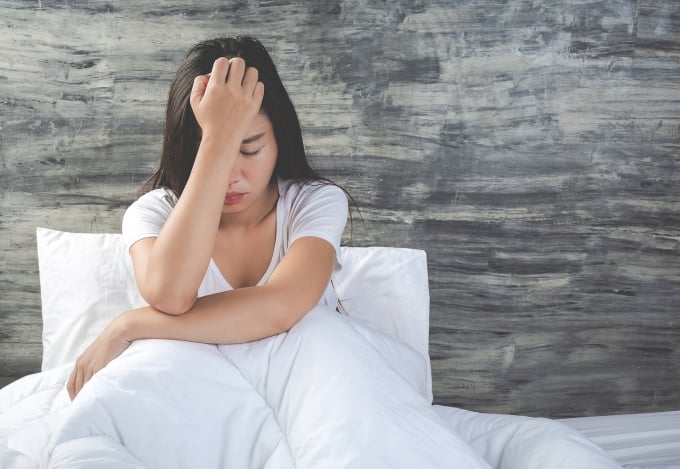Sleep paralysis, also known as sleep paralysis, can occur in people with narcolepsy or other mental health disorders.
As the body falls asleep, the brain sends signals to relax the muscles in the arms and legs. This results in a loss of muscle tone and a temporary state of paralysis during the rapid eye movement (REM) phase, which begins 70 to 90 minutes after falling asleep.
If a part of the brain becomes active, sleep paralysis (also known as sleep apnea) occurs, where the sleeper is aware of their surroundings but unable to move their limbs or speak, and gradually experiences hallucinations for a few minutes. According to WebMD , 4 out of 10 people experience sleep paralysis at least once in their lifetime, and it is most common in adolescence.
Sleep disorders
A 2010 study by Kaohsiung Medical University (Taiwan), involving 100 participants, showed that sleep paralysis is common in people with chronic insomnia, circadian rhythm disorders, and nocturnal leg cramps. Of these cases, 38% experienced obstructive sleep apnea.
Scientists explain that sleep disorders can affect the quality, quantity, and duration of sleep; consequently, leading to daytime irritability and impaired cognitive function at night. Sleep paralysis is more common when sleeping on your back, as this position easily causes snoring and sleep apnea.

Sleep paralysis affects sleep, leading to frequent awakenings and fatigue. (Image: Freepik)
Narcolepsy
People with narcolepsy often have difficulty controlling their sleep-wake cycle due to a loss of brain cells that produce a neurotransmitter called orexin. This substance plays a role in maintaining wakefulness and inhibiting REM sleep. As a result, the brain can become paralyzed after falling asleep more frequently.
Signs of narcolepsy include interrupted sleep, hallucinations, daytime sleepiness, or muscle weakness. Risk factors for narcolepsy include jet lag and shift work.
Mental health disorders
People with post-traumatic stress disorder, those who have experienced physical and mental distress, and those with anxiety disorders are more susceptible to sleep paralysis. This is because a combination of hallucinations, disordered thoughts, and behaviors disrupts daily functioning, leading to the development of anxiety and ultimately sleep paralysis.
People who daydream are also more likely to experience sleep paralysis. Scientists explain that belief in the supernatural increases hallucinations.
Sleep paralysis is not harmful, but it can affect mental health, easily leading to negative thoughts before bedtime and reducing the number of hours of restful sleep. To avoid this, everyone should maintain a regular sleep-wake schedule and get enough sleep.
In your daily routine, avoid caffeine, limit evening snacks, and refrain from using phones or computers before bed to reduce exposure to blue light. Relax before bedtime by taking a bath, reading a book, or listening to soothing music.
Huyen My (According to Sleep Foundation, Healthline )
| Readers can post questions about neurological diseases here for doctors to answer. |
Source link



































































































![[Photo] Coc Ly market bustling on the eve of Tet](https://vphoto.vietnam.vn/thumb/402x226/vietnam/resource/IMAGE/2026/02/14/1771062261424_baolaocai-br_img-6457-jpg.webp)







Comment (0)